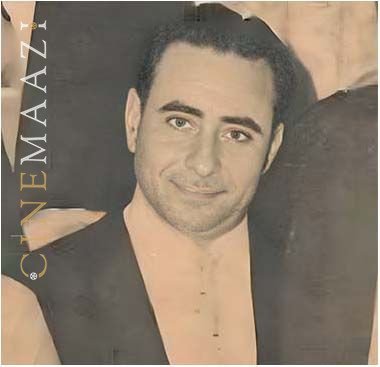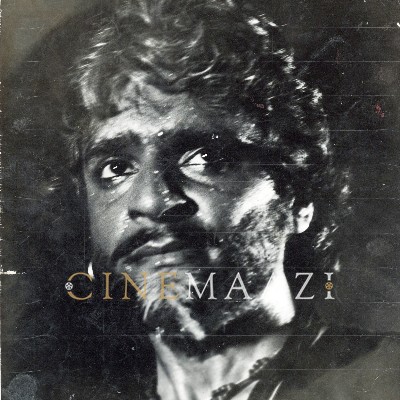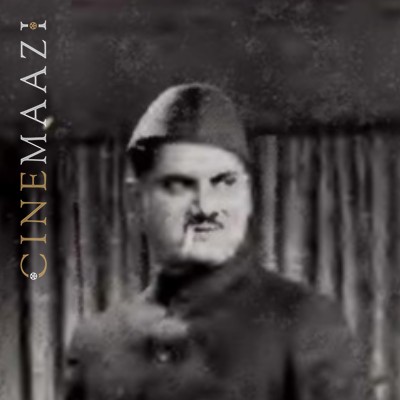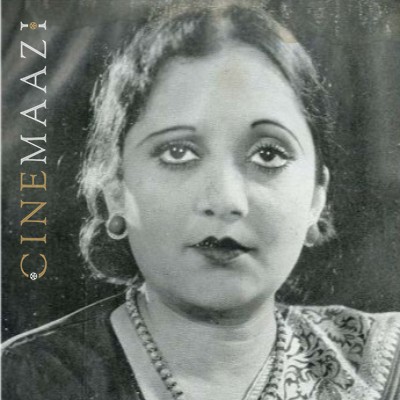F C Mehra

Subscribe to read full article
This section is for paid subscribers only. Our subscription is only $37/- for one full year.
You get unlimited access to all paid section and features on the website with this subscription.
Not ready for a full subscription?
You can access this article for $2 , and have it saved to your account for one year.
- Real Name: Fakir Chand Mehra
- Born: 9 August 1923 (Peshawar)
- Died: 29 July 2008 (Mumbai)
- Primary Cinema: Hindi
- Children: Umesh Mehra , Parvesh C Mehra , Rajiv Mehra , Rajesh Mehra
Founder of the Eagle Films banner, Fakir Chand Mehra, also known as F C Mehra, was born in Peshawar, British India, now Pakistan on 9th August 1923. As a producer, he went on to play a key role from the mid-1950s in creating the massive identity of mainstream Hindi cinema.
Hailing from a family of Hindu Pathans, the Mehras were from the same city as the famous Prithviraj Kapoor clan. He started his career with a ground job in the Royal Indian Air Force. He was posted to Bombay and the entire family including his parents and nine siblings migrated from Peshawar.
The young Fakir Chand was a straightforward man. Apparently, when he observed a British officer involved in some improper activities, he felt it was his duty to inform the superiors. However, on doing so, he himself was suspended from service. Times were tough and he had to find work soon. A fighter, he went on to try his hand at various small businesses including trading in clothes.
It was on one of his business trips to Afghanistan that the idea of film distribution surfaced. Observing the interest in Hindi cinema that the locals had, he was struck by the idea of doing film business in Afghanistan. The late 1940s saw F C Mehra taking film cans to Kabul. “He even traveled on the rooftop, to Kabul via the Khyber Pass. Those days the borders were still quite porous….He showed the film at a cinema there and it was a big success,” recalled his son Umesh Mehra in an interview.
This proved to be a defining moment in F C Mehra's life. He realized that it was in the world of cinema that his future lay. “He returned to Bombay and started buying more films and going [to Kabul], and it continued," the son recounted. "Eventually he started buying the rights beforehand when the film was under production."
One such under-production film, which had halted for want of funds, was taken over by FC Mehra. He completed it and that’s how he turned producer. "Then he made Sipahsalar (1956) and the journey began," Umesh Mehra said. Sipahsalar marked the beginning of his journey as a full-fledged producer. It was an action film starring Shammi Kapoor and Nadira. Under the banner of his Eagle Films, he went on to produce a number of entertainers like Mujrim (1958), Ujala (1959), Singapore (1960), Professor (1962), Amrapali (1966), Prince (1969), Lal Patthar (1971), Elaan (1971), Bandie (1978), Hamaare Tumhare (1979), Alibaba Aur 40 Chor (1980), and Sohni Mahiwal (1984).
He was also the proud owner of one of Mumbai's oldest cinema halls - Minerva and the Plaza cinema hall in Delhi. In the course of his long and successful career, F C Mehra also produced television serials like Zabaan Sambhal Ke, Mamaji, Office Office, and Khatta Meetha.
Known to be completely hands-on as a producer, F C Mehra was a veritable one-man show. Armed with his briefcase, he would write vouchers, run a shoot, talk to the actors, arrange for meals, and more. As the business grew, more people joined but the hard-working Mehra ensured he ran a well-managed organization. He kept complete tabs on monetary matters. Even if he was not on the sets, he would ensure he received a complete list of requirements including the number of artists and staff, a day prior to shooting. Accordingly, money would be withdrawn from the bank and spent on a daily basis.
A perfectionist, F C Mehra would supervise the results of the day’s shoot the very next day itself – nothing short of a feat in the pre-digital age. After pack-up, the reels would be sent to Filmcentre in Tardeo, central Bombay. They would be processed during the night and the rushes would be printed. By 9 am the next day, Mehra would view and assess the parts shot the previous day. If he found it lacking in some way, he would question the director. His knowledge of the process was admirable as he was entirely self-taught and had no training or family connection with cinema.
F C Mehra was also known for his gift for spotting talent. He looked for those who would be willing to go to any lengths to create the best product possible – not someone merely desiring the perks of filmdom. He would cleverly pick the talented ones from among those who were struggling. This was seen in his choice of director for his first film, Sipahsalar (1956) itself. He chose a gentleman named Mohammed Hussain. Hussain turned out to be a good choice and the duo continued to work together for more films, like Aji Bas Shukriyaa (1958), Shikari (1963) and Khoon Khoon (1973),
He was also known for reimbursing distributors of his films if they made a loss. He had a personal relationship with each of the six distributors he would sell his films to. If his film sank, he made sure to compensate the distributor. For instance, when money was lost on Amrapali, the distributors were compensated in the next film.
Two of F C Mehra's films, Ujala (1959), starring Shammi Kapoor, Raaj Kumar and Mala Sinha, and Lekh Tandon's magnum opus Amrapali (1966), starring Vyjayanthimala and Sunil Dutt, were chosen as India’s official entries for the Oscars.
A hockey player who had played for Peshawar, Mehra stayed far from habits such as drinking or smoking. Despite being in the film industry and working with the top names, his reputation remained untainted.
F C Mehra passed away due to cardiac failure at a Mumbai hospital. He is survived by his four sons, including filmmakers Umesh Mehra and Parvesh Mehra.
Additional information courtesy: Cinestaan











.jpg)



